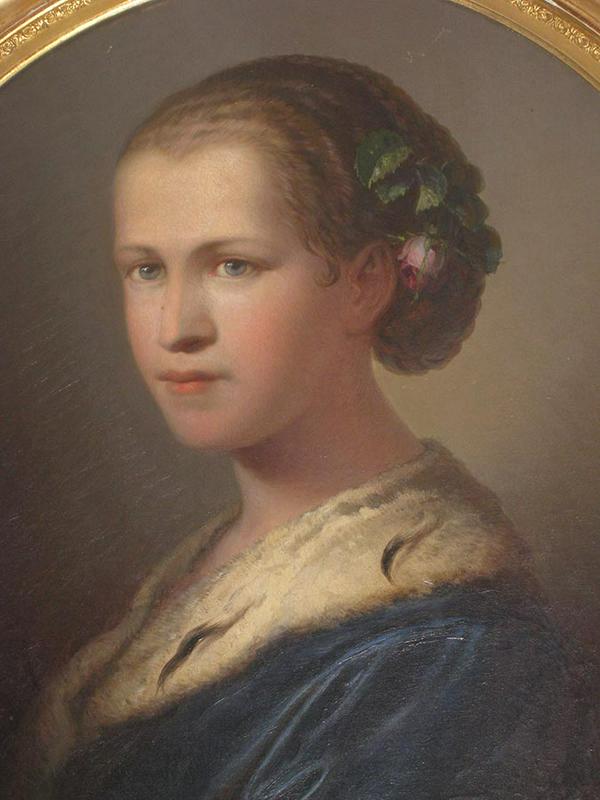
In an era when women could not get a formal education and female writers were unheard of in the Slovenian Lands, Josipina Turnograjska bucked the trend. She became an influential writer and a poet – and did it all before she turned 21.
Josipina Turnograjska was born Josipina Urbančič in the Turn Castle near the Slovenian town of Preddvor in 1833. She was born into a life of privilege, but she lost her father when she was a small girl. At the time, formal schooling was not available to girls, so her mother decided to bring in a group of tutors – educated men from throughout the Slovenian Lands – to give the girl an unusually comprehensive education.
Her tutors covered all the subjects that boys would have encountered in school. Significantly, she received extensive lessons in Slovenian even though German was then the lingua franca of the nobility. This made Turnograjska proud of her Slovenian origin and gave her the confidence to write in her native language. Despite the initial hostility from those who believed that a woman had no business being a writer, she soon became well-known for her literary stories, some of which were published in the prestigious literary journal Slovenska Čbela.
Her work dealt with moral and historical themes, many of them related to the early Slavs, such as the Bulgarians’ conversion to Christianity. Unusual for the time, strong female characters with supernatural powers were a hallmark of her works. One of her most famous stories was based on the life of Veronika of Desenice, a medieval noblewoman who was murdered after being accused of witchcraft by her father-in-law. In Turnograjska’s retelling, Veronika became a Slavic heroine, while another of her works features a female warrior who went to fight the Turks. Because both women writers and strong female characters were exceedingly rare in the Slavic world, Turnograjska’s stories won her admirers as far away as Russia.
Even though she was best-known for her prose, Turnograjska also composed piano pieces and wrote romantic poetry. She wrote one of her poems during a visit to her beloved father’s grave.
In 1853, Turnograjska married Lovro Toman, a highly cultured man who had studied law in Graz and with whom she had corresponded for three years. She gave birth to a healthy baby, but she contracted measles shortly thereafter and died not long before her 21st birthday. Today, she is recognized not just as a talented writer, but also serves as a role model for Slovenian women who choose to pursue literary careers of their own.


































































